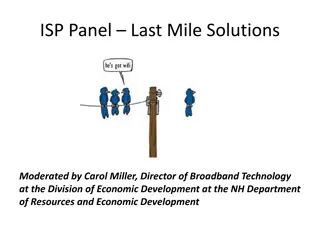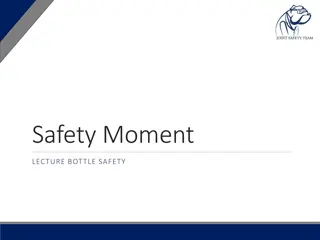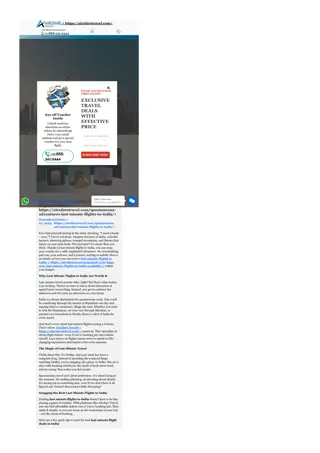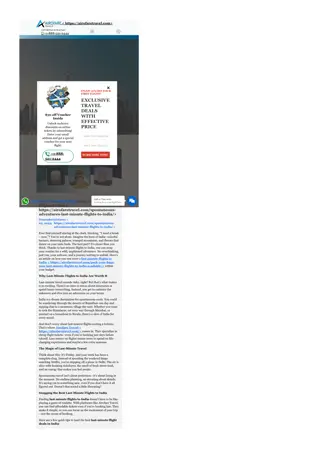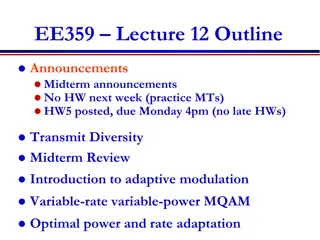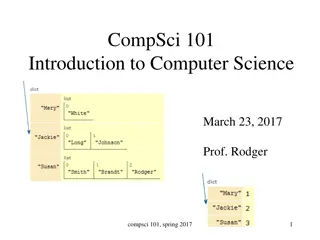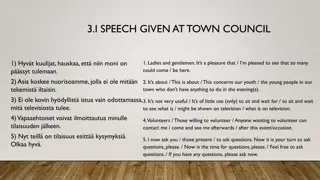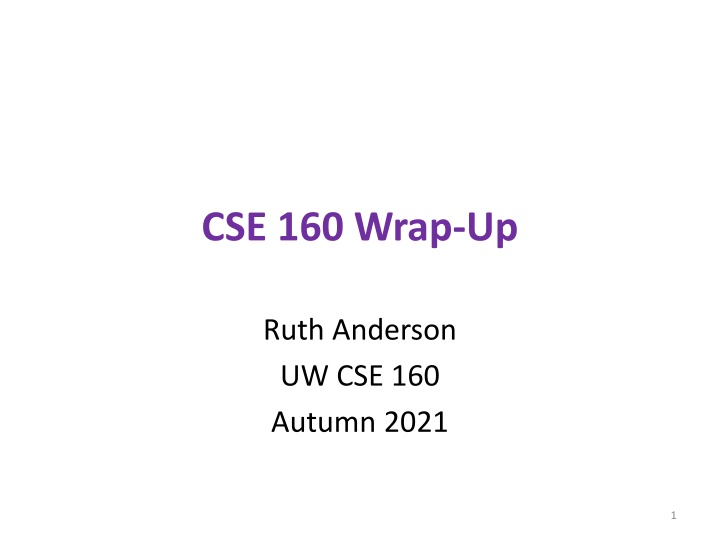
Unlocking the Power of Data Processing and Programming Concepts
Dive into the world of data processing and programming with CSE 160 Wrap-Up at UW. Learn about computational problem-solving, Python programming, real datasets, and the importance of extracting insights from data. Discover how mastering these skills can open doors to advanced computing classes and various fields like astronomy, biology, economics, and more.
Download Presentation

Please find below an Image/Link to download the presentation.
The content on the website is provided AS IS for your information and personal use only. It may not be sold, licensed, or shared on other websites without obtaining consent from the author. If you encounter any issues during the download, it is possible that the publisher has removed the file from their server.
You are allowed to download the files provided on this website for personal or commercial use, subject to the condition that they are used lawfully. All files are the property of their respective owners.
The content on the website is provided AS IS for your information and personal use only. It may not be sold, licensed, or shared on other websites without obtaining consent from the author.
E N D
Presentation Transcript
CSE 160 Wrap-Up Ruth Anderson UW CSE 160 Autumn 2021 1
Progress in 10 weeks 10 weeks ago: you knew no programming Goals: Computational problem-solving Python programming language Experience with real datasets Fun of extracting understanding and insight from data, and of mastery over the computer Ability to go on to more advanced computing classes Today: you can write a useful program to solve a real problem 2
Thanks! 3
Why do you care about processing data? The world is awash in data Processing and analyzing it is the difference between success and failure for a team or for an individual Manipulating and understanding data is essential to: Astronomers Biologists Chemists Economists Engineers Entrepreneurs Linguists Political scientists Zoologists and many more! 4
Programming Concepts Variables Assignments Types Programs & algorithms Control flow: loops (for), conditionals (if) Functions File I/O Python execution model How Python evaluates expressions, statements, and programs 5
Data structures: managing data List Set Dictionary Tuple Graph List slicing (sublist) List comprehension: shorthand for a loop 6
f(x) = x2 Functions Procedural abstraction avoid duplicated code the client does not need to know about the implementation Using functions Defining functions 7
Data abstraction Dual to procedural abstraction (functions) A module is: operations An object is: data + operations Operations: create, query, modify Clients use the operations, never directly access data The client does not need to know about the representation of the data Programmer defines a class. Each instance of a class is an object. 8
Testing and debugging Use small data sets to test your program Write enough tests: Cover every branch of each boolean expression especially when used in a conditional expression (if statement) Cover special cases: numbers: zero, positive, negative, int vs. float data structures: empty, size 1, larger Assertions are useful beyond tests Debugging: after you observe a failure Divide and conquer In time, in data, in program text, in development history this is also a key program design concept The scientific method state a hypothesis; design an experiment; understand results Think first ( lost in the woods analogy) Be systematic: record everything; have a reason for each action 9
Data analysis Statistics Run many simulations How uncommon is what you actually saw? Graphing/plotting results 10
Efficiency & Good Programming Practice Efficiency: Focus on expensive operations (e.g. reading & writing files & printing) Focus on loops (Try to minimize the number of times you iterate over data) Programming Style Matters! 11
Data! DNA Images 2D points and Handwriting Samples Social Networks Election Results 12
What you have learned in CSE 160 Compare your skills today to 10 weeks ago The assignments would be easy for you today This is a measure of how much you have learned There is no such thing as a born programmer! Your next project can be more ambitious Genius is 1% inspiration and 99% perspiration. Thomas A. Edison 13
Go forth and conquer System building and scientific discovery are fun! It s even more fun when your system works Pay attention to what matters Use the techniques and tools of CSE 160 effectively 14
Final Exam Topics: Everything in the course up to and including List Comprehensions is fair game. Part 1 - similar to the midterm: writing small functions, although now dictionaries, sets, and tuples and sorting could be involved. Part 2 - short answer questions and code writing that involves writing less than an entire function. Released by 5pm Mon 12/13, due by 5pm Thurs 12/16 Similar Policies to Midterm Groups of up to 4 15


